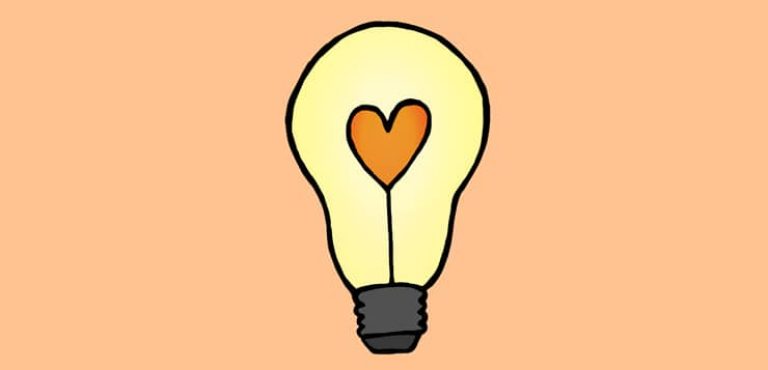Robert Emmons explains how gratitude can not only make us happier but also improve our relationships and performance at work.
A couple of summers ago, I traveled to the steamy cauldron of central Florida to speak at the WorkHuman conference. Nearly 1,500 human resource professionals were in attendance, eager to hear from luminaries like Arianna Huffington and Rob Lowe (probably more than they wanted to hear an academic like me recite his research findings). Beaten down by dispiriting, depleting, and demoralizing workplaces, they were hungry for ways to create more energizing and elevating environments.
WorkHuman is the brainchild of Globoforce, a progressive company that helps other companies develop and implement effective programs that recognize and celebrate the work of their employees. In a nutshell, they aim to bring more gratitude into organizations, making workplaces more human and humane.
Globoforce is in the global business of thanks, using the power of gratitude to proactively improve a company’s culture. Drawing upon the science of gratitude and their own internally driven set of practices, they have demonstrated that giving and receiving appreciation is both beneficial and vital to a high-functioning organization.
In collaboration with the IBM Smarter Workforce Institute and the Society for Human Resource Management, Globoforce has been conducting research in nearly 50 countries around the world. Their studies, along with others’ research, have linked gratitude and related traits (like engagement) to improvements in productivity, profitability, quality, loyalty, safety, absenteeism, and other cost and performance metrics.
Globoforce would be the first to admit that recognizing and celebrating the contributions that others make to our work is not a brand new idea. But the science of gratitude has been highlighting new reasons to take this idea seriously. While some of these reasons—stronger relationships, more happiness—have long been documented by studies that I and many others have conducted, research is also pointing to more ways in which gratitude works at work. Here are three surprising ways that gratitude pays off.
1. Gratitude facilitates better sleep
Lost sleep quantity and quality is also linked with poor job satisfaction, worse executive functioning, less innovative thinking, lower occupational performance, more safety errors and work injuries, and even death. Sleep deprivation also negatively affects relationships because sleep-deprived people are less trusting of others and more impatient, frustrated, and hostile. Sleep is the mind and body’s quintessential restorative activity. The National Sleep Foundation reports that 95 percent of people need seven to eight hours of sleep per night, and yet 30 percent of Americans get less than six hours. Preventing sleep deprivation could be a massive cost saver for workplaces: Last year’s Rand Corporation study reported that sleep deprivation cost US companies more than $400 billion a year in lost productivity, more than 2 percent of the country’s gross domestic product (GDP). Similar losses were found around the world, with Japan, Germany, and the UK also losing 1.5-3 percent of their GDP to too little sleep. The Rand study estimated that if people who sleep under six hours a night started sleeping between six and seven, this could add over $200 billion to the US economy.
In one study, people keeping a gratitude journal slept on average 30 minutes more per night, woke up feeling more refreshed, and had an easier time staying awake during the day compared to those who didn’t practice gratitude.
A number of studies have shown that gratitude promotes physiologically restorative behaviors, chief of which is better sleep. Grateful thinking and grateful moods help us sleep better and longer. In one study, people keeping a gratitude journal slept on average 30 minutes more per night, woke up feeling more refreshed, and had an easier time staying awake during the day compared to those who didn’t practice gratitude.
How does gratitude facilitate better sleep? Research suggests that grateful people have more positive “pre-sleep cognitions” and fewer negative pre-sleep cognitions. Negative, critical thoughts (e.g., about bad things happening in the world) tend to induce sleeplessness. But grateful people’s minds are awash in pleasant thoughts (e.g., about enjoyable things that happened to them during the day), and this promotes sleepiness.
The connection is clear: Grateful people enjoy more restful, restorative, and refreshing sleep and reap the benefits at work the next day.
2. Gratitude reduces excessive entitlement
On the job, people with excessive entitlement tend to engage in more counterproductive work behaviors, actions designed to harm an organization or its members. These include theft, aggression, violence, sabotage, withdrawal, deliberate poor performance, and threatening, abusing, and blaming others. Entitlement can show up in toxic workplace cultures alongside gossip, complaining, and negativity. Entitlement refers to “attitudes about what a person feels here she has a right to and what a person feels here she can expect from others.” But some people suffer from a condition known as “excessive entitlement”: They feel they deserve more than others, a disproportionately greater amount of a particular good beyond what would be considered appropriate. They are dissatisfied with whatever they receive, whether it is pay, promotions, or praise.
How is gratitude relevant here? A person who feels entitled to everything will be grateful for nothing; gratitude is the antidote to entitlement, and to other aspects of toxic workplace culture. Grateful individuals live in a way that leads to the kind of workplace environment that human beings long for. Gratitude produces higher levels of positive emotions that are beneficial in the workplace, such as joy, enthusiasm, and optimism, and lower levels of the destructive impulses of envy, resentment, greed, and bitterness.
A person who feels entitled to everything will be grateful for nothing; gratitude is the antidote to entitlement, and to other aspects of toxic workplace culture.
Furthermore, recent social psychological research has shown that gratitude is linked to lower levels of hostility and aggression. When people are experiencing gratitude, they are approximately 20-30 percent less likely to be annoyed, irritated, and aggressive. They are less susceptible to having their feelings hurt, and, when their feelings are hurt, they are less likely to strike back. Years ago, a very wise person said that gratitude is a vaccine, an antitoxin, and an antiseptic.
3. Gratitude drives us to contribute more to our organization
Considerable research has demonstrated gratitude as a driver of “prosocial” (kind and helpful) behavior. A recent review of over 50 studies found that gratitude is even more strongly linked to prosocial behaviors than happiness or empathy. Not surprisingly, then, grateful people make better organizational citizens. They are more likely to volunteer for extra work assignments, take time to mentor coworkers, be compassionate when someone has problem, and encourage and praise others. Grateful people practice behaviors that fall in the category of being a good citizen. In the workplace, gratitude inspires employees to be helpful and deters them from engaging in behaviors that are harmful.
Beyond the social sphere of work, gratitude also drives enhanced performance in the cognitive domain: Grateful people are more likely to be creative at work. Gratitude promotes innovative thinking, flexibility, openness, curiosity, and love of learning. Grateful people have an interest in learning new information and skills, and they seek opportunities to learn and develop. (In fact, a highly publicized 2015 study found that out of 24 strengths of character, love of learning and gratitude were the strongest predictors of overall well-being.)
Willibald Ruch and his colleagues at the University of Zürich recently proposed a new organizational model where team members fall into one of seven roles: idea creator, information gatherer, decision maker, implementer, influencer, energizer, or relationship manager. They found that grateful people were likely to be “idea creators”: successful with developing new and innovative ideas and reaching solutions in unconventional ways.
These early findings are promising, but systematic research on workplace gratitude has only recently begun. Much work remains: Ryan Fehr, a professor of management at the University of Washington, recently proposed 17 testable hypotheses to move research on gratitude in the workplace forward.
But you literally cannot overplay the hand of gratitude; the grateful mind reaps massive benefits in every domain of life that has been examined so far. There are countless ways in which gratitude could pay off in the workplace. As I wrote in The Little Book of Gratitude, gratitude is “the ultimate performance-enhancing substance.”


